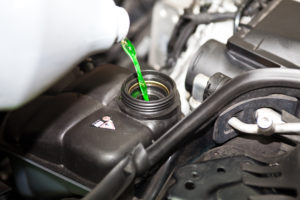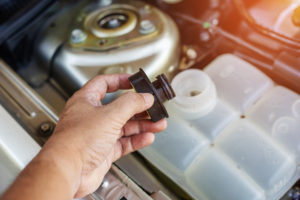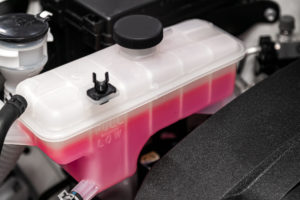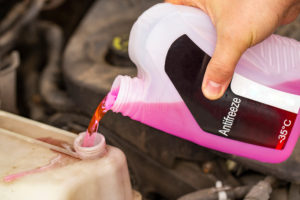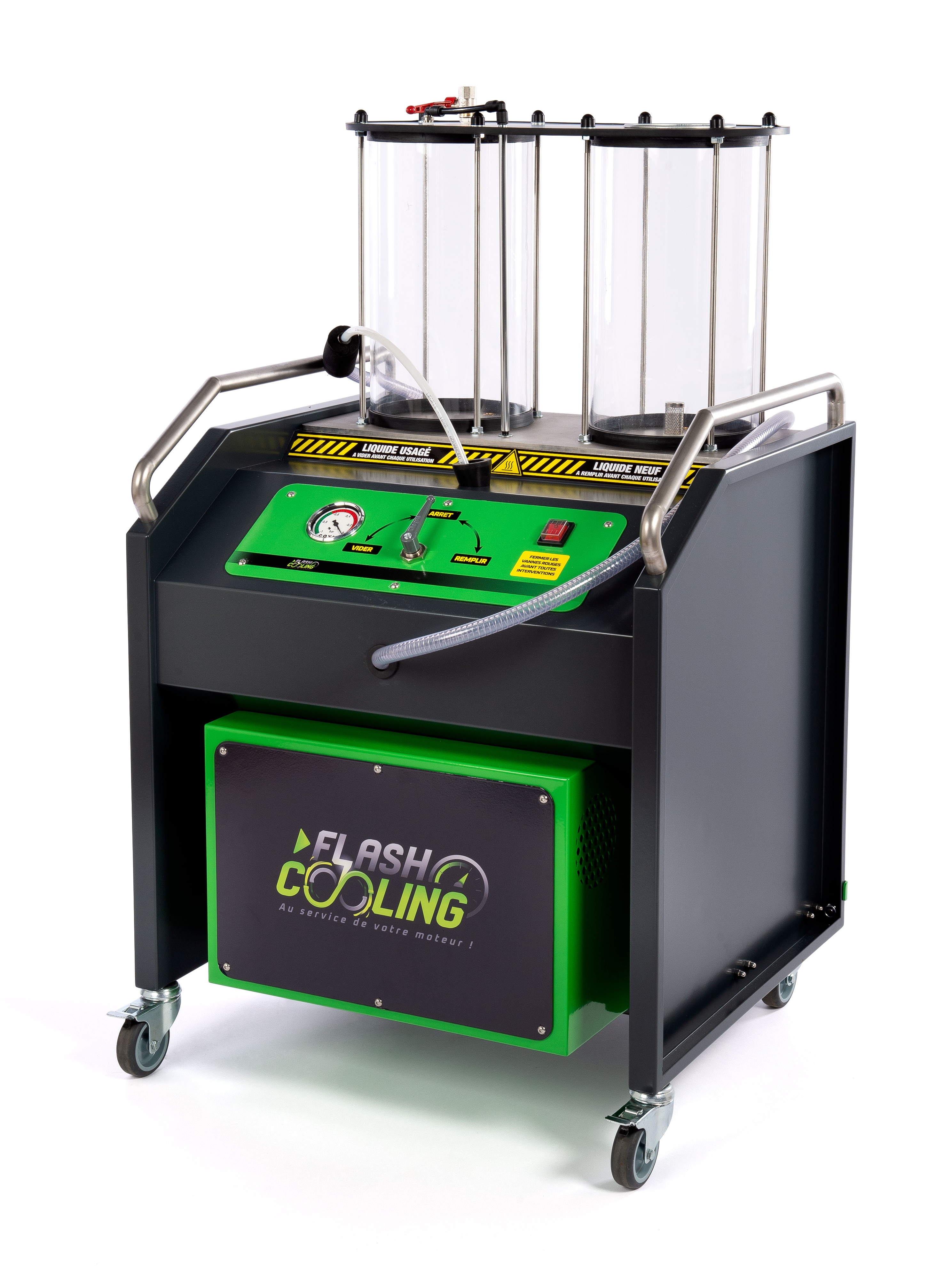The role of coolant
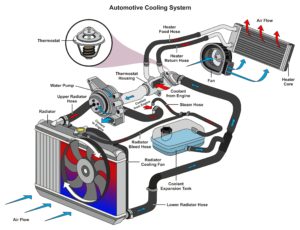 The role of coolant is simple but very important. It must cool the engine temperature to avoid any risk of overheating that could cause irreparable damage to the vehicle. It is an essential part of the engine cooling system.
The role of coolant is simple but very important. It must cool the engine temperature to avoid any risk of overheating that could cause irreparable damage to the vehicle. It is an essential part of the engine cooling system.
When they are in operation, internal combustion engines generate quite high temperatures, especially when the engine is stopped or when it rises in revolutions. However, the various mechanical parts of an engine are unable to withstand such high temperatures for long periods of time.
It is therefore imperative to cool the engine in order to maintain its reliability and service life over time.
What is the composition of the coolant?
 The coolant consists of water, glycol and additives. Its chemical properties mean that it does not boil at 100°C, as water would. But also to freeze only at very low temperatures, below -20°C. The coolant’s ability to withstand extreme temperatures ensures that the engine benefits from a constant temperature.
The coolant consists of water, glycol and additives. Its chemical properties mean that it does not boil at 100°C, as water would. But also to freeze only at very low temperatures, below -20°C. The coolant’s ability to withstand extreme temperatures ensures that the engine benefits from a constant temperature.
In the coolant, the amount of treated water is 48% to prevent the engine from overheating and to keep the temperature around 100°C.
As for antifreeze, with a ratio equal to that of treated water (48%), it protects the cooling circuit from freezing when the outside temperature is very low. As for the anti-corrosive element, it is 4% and allows the cooling system to be protected from corrosion.
What are the different types of coolants?
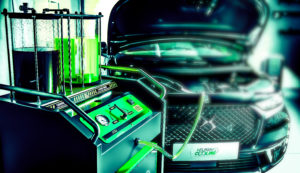 There are 3 main types of coolant:
There are 3 main types of coolant:
-
Mineral : Inorganic Additive Technology (IAT)
This is the first coolant technology. Even though it is now outdated for the requirements of modern engines, it is still used for older vehicles.
-
Organic : Organic Additive Technology (OAT)
So-called “universal” liquids fall into this category. They are the most environmentally friendly and have the advantage of being miscible with other types of liquids.
-
Hybrid : Hybrid Organic Additive Technology (HOAT)
It is a mixture of IAT and OAT. This technology was developed to meet the specific specifications of certain car manufacturers.


